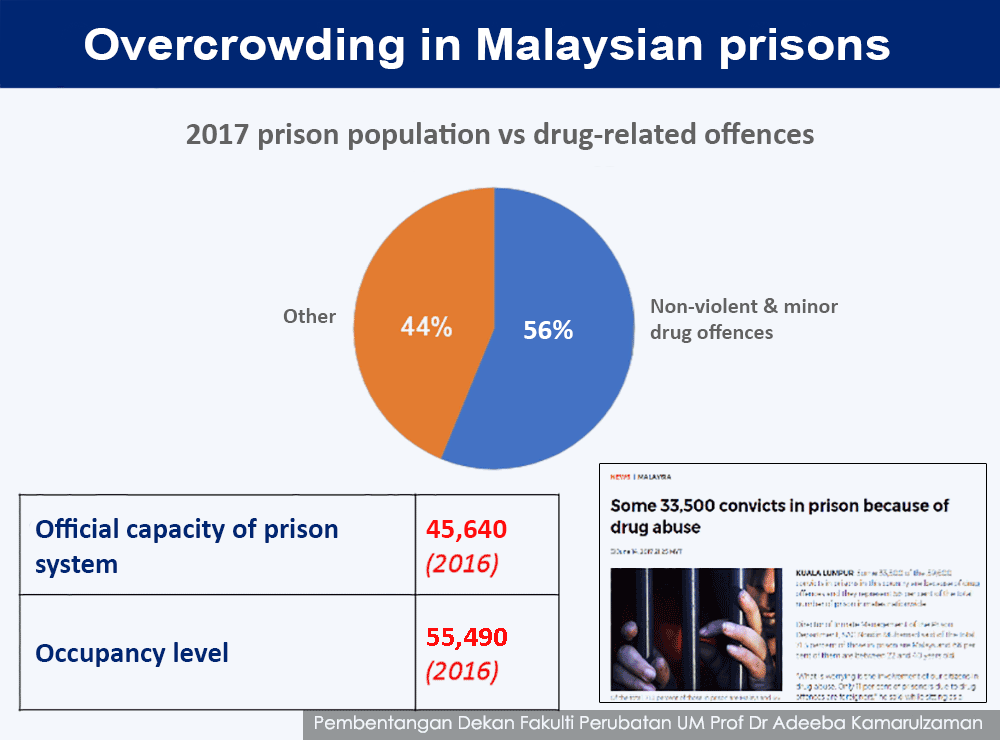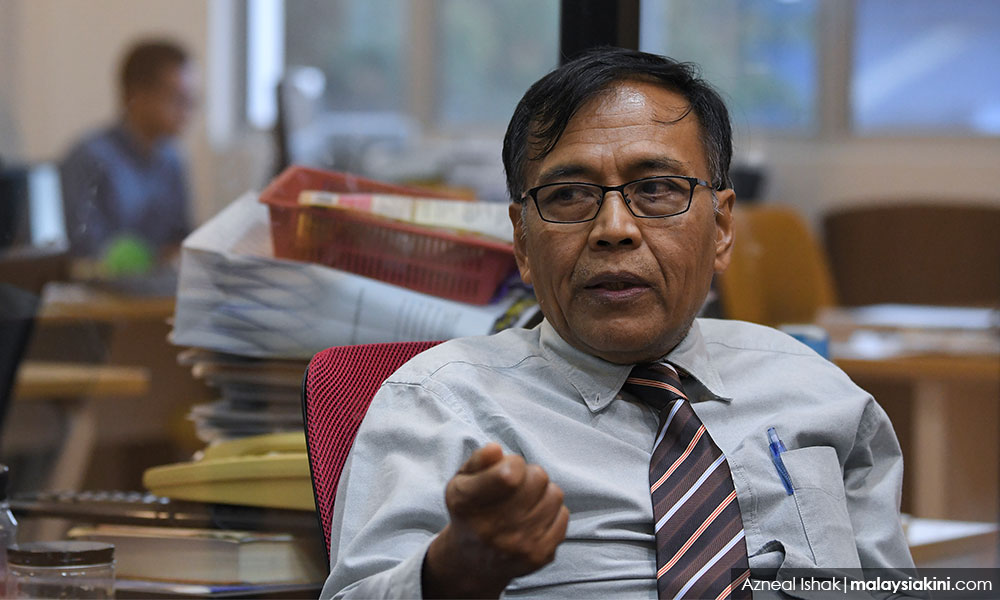There is no absolute correlation between drug use and violent crimes, according to several health experts.
Former National Drug Agency (AADK) deputy director Sangeeth Kaur pointed out that many users end up behind bars solely for drug-related offences, and not for other crimes.
"You cannot say that all criminals commit crimes because of drugs. You can't say that," she told Malaysiakini in a recent interview.
According to statistics from 2017, Sangeet said 80,925 individuals were arrested for drug use, from a total of 208,850 individuals tested.
"All 80,925 arrests in 2017 have no involvement in other crimes," she explained.
Echoing Sangeeth's views, Hussain Habil (photo), the head of Mahsa University's Psychiatric Department, said that perpetrators of violent crimes are not always drug users, but are likely suffering from mental illnesses, such as schizophrenia.
"Based on our experiences in the field of clinical psychiatry, we found that most perpetrators of violent crimes were not (directly) under the influence of drugs, although their urine samples tested positive for drugs.
"This is because drugs can still be detected in a person's urine even after a few weeks, depending on the type of drugs used and their frequency," he told Malaysiakini.
"Nowadays, crimes are being linked to drug use because of the 'sensational' element. Society has a tendency to veer towards sensationalism.
"So without looking deeper into the matter, they just label it that (violent crimes are caused by drug addiction)," he said.
Hussain, who once headed the Asean Psychiatric Association, explained that there is a higher risk of criminal violence resulting in murder being committed by individuals diagnosed with schizophrenia.
"Their risk of committing murder is 100 times higher compared to individuals not diagnosed with schizophrenia.
"So to directly link all these people (perpetrators of violent crimes) to drug use and drug addiction is inaccurate."
'Imprisonment a health risk'
Meanwhile, Universiti Malaya Addiction Science Research Centre director Rusdi Abd Rashid said that sentencing drug users to prison only increases the risk of them contracting communicable diseases like tuberculosis.
"Our prisons have become an incubator for diseases. This is made worse by limited access to healthcare for prisoners.
"If we can replace the sentence for drug users (from mandatory imprisonment) to medical referrals, we can reduce the number of inmates by 56 percent," he said, citing a 2017 Prisons Department statistic that 33,500 of the 59,600 inmates nationwide are drug offenders.

A Human Rights Commission (Suhakam) study in the same year on rights to healthcare in prison found an active strain of tuberculosis spreading within the Kajang Prison at a rate of 88.8 percent among inmates, and 87.6 percent among staff.
"Inmates with communicable diseases not only pose a risk to other inmates, but also to prison staff, family members, prison visitors and ultimately society at large," said Suhakam, noting that there is limited access to means of detecting the disease among inmates.
"There is a mismatch between the number of doctors and inmates. For example in Kajang prison with 4,162 inmates (at the time the study was conducted), there were only two doctors assigned."
According to Rusdi, this has led to delays in inmates seeking treatment for a prolonged cough of more than two weeks, an early sign of tuberculosis.
'Corruption and access to drugs'
Even behind bars, Rusdi warned that corruption within the prison system could open up access to drug supplies, which are then abused in a more high-risk manner.
"That is why several countries have promoted the distribution of methadone and needle exchange programmes in prison.
"It is not done to promote drug use, but to reduce the risk of drug use, particularly to spread communicable diseases," he explained.
On Jan 14, police reportedly crippled a syndicate dealing drugs for inmates in prisons around Johor.
Inspector-general of police Mohamad Fuzi Harun said the drugs seized included 9.88kg of syabu, 16.4kg heroine and 940 ecstasy pills, with a total estimated value of RM814,000.
RELATED REPORT


